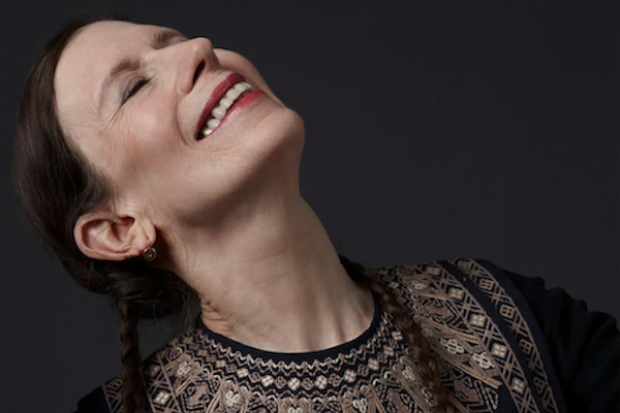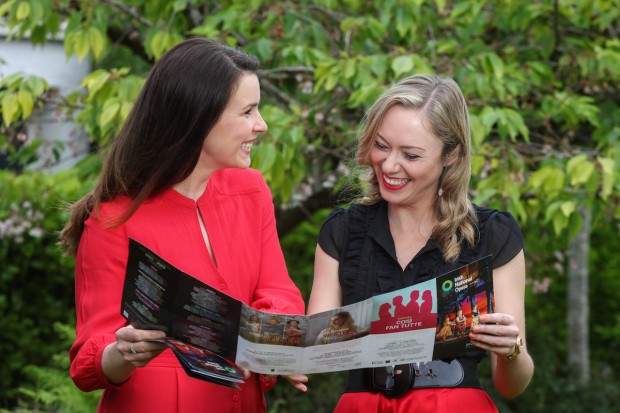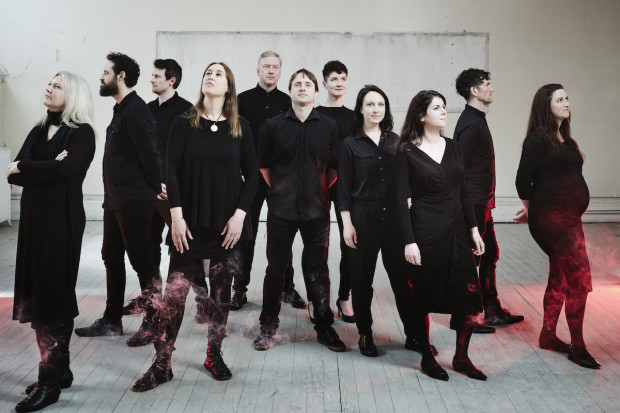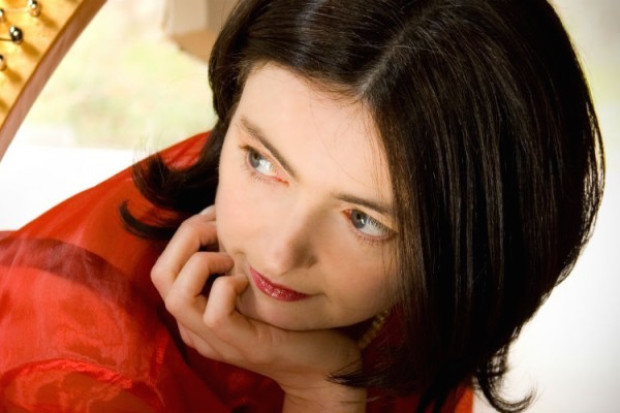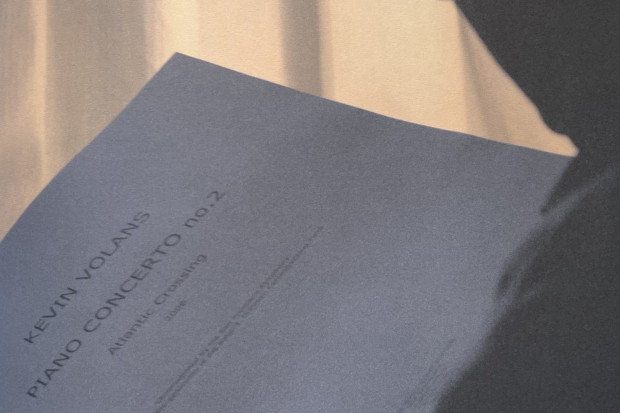
Mezzo-soprano Sharon Carty and conductor Killian Farrell (Photo: Irish Chamber Orchestra)
A Concert Like a Classical Work: Killian Farrell, Sharon Carty and the Irish Chamber Orchestra
Last weekend, the Irish Chamber Orchestra began its 2024 season with concerts at University Concert Hall, Limerick, on 9 February and the new Whyte Recital Hall at the Royal Irish Academy of Music, Dublin, on 10 February, featuring mezzo-soprano Sharon Carty and led by the young Irish conductor Killian Farrell. The whole programme took on the rough shape of a classical work, with bright symphonies by Prokofiev and Mozart bookending more sombre works by Mahler and Deirdre Gribbin.
Farrell may be young, but he already has quite extensive experience under his belt, particularly as an opera conductor in Germany, and having led performances of Donnacha Dennehy’s The Second Violinist here in Ireland. This was, however, my first time seeing his work, and I entered the concert hall wondering where his approach would fall on the spectrum of cautious to adventurous. I have to admit that my first impression left me apprehensive, with the first movement of Prokofiev’s first symphony taken at a rather reserved pace for its allegro. That said, while it was – for me – too slow, it was by no means sluggish, with the orchestra achieving a bright and strident sound, and the tempo allowed some very nice detail in the balancing of the parts, with some pretty moments which in very quick recordings are gone in the blink of an eye.

Killian Farrell and the Irish Chamber Orchestra (Photo: Irish Chamber Orchestra)
Farrell’s choices
The remaining three movements worked very well, with a luxurious slow movement and bouncy gavotte. And there was absolutely no evidence of wariness in the sprint of the final movement, with its almost concerto-like flute passages, and its conclusion hit the exact right brightness of tone.
The Prokofiev was balanced at the end of the programme by Mozart’s equally exuberant, though much more substantial, ‘Jupiter’ symphony. Here again I wasn’t fully convinced by Farrell’s choices in the first movement; specifically, he took the contrasted motifs which open the movement at very different tempi, the lyrical second motif far slower than the opening strident one. While I can see the effect he was aiming for here, emphasising the contrast, it felt rather like over-egging the cake. That the tempi aligned in the recapitulation may have been intended as a harmonious conjunction, but the result was rather incongruous.
Like the Prokofiev, though, my objections (which you may take as pedantic if you like) end at the first movement. The remaining three were bright and colourful, with the orchestra perfectly balanced in the ebullient counterpoint of the finale.
Between the two symphonies were darker-hued works by Deirdre Gribbin and Gustav Mahler, both of which featured mezzo soprano Sharon Carty. ‘Ich bin der Welt abhanden gekommen’, from the loose collection Rückert-Lieder is among Mahler’s most touching songs, and between Carty’s velvety, expressive voice and the orchestra’s beautifully poised sound, this was delicately heartbreaking. This also allowed the orchestra to show its more lyrical side, with harp and cor anglais featured. The new recital hall’s clear, dry acoustic was also a major benefit here even more than in the preceding works, a good match for Mahler’s layered orchestration, his sensitivity to instrumental texture and contrapuntal line.
Gribbin’s The Stones of Life is a clearly personal work, a cycle of six songs setting words by her 18-year-old poet son Ethan Stein, who has Down syndrome. As the composer describes, this cognitive difference leads him to explore the world ‘using imagistic words and phrases which are outside the norm of description.’ There is indeed a real descriptive beauty to the poetry’s short lines: ‘I stand / Not looking, / Up into the sky, / Snowflakes falling on my eye’ or ‘Koalas clung, towards each other, / Crying silk tears.’
Gribbin underscores these words with gentle textural music for string orchestra, often imagistic in its own way. ‘Winter’, the first song in the cycle, is high and cold, while there is a sense of desolation and despair in the third and fourth, ‘Grieving Elephants’ and ‘Bushfire’. But there’s a loose narrative through-line in the cycle as well, ending in hope, in a glistening extended major chord: ‘I climbed on high land, / Reaching strength, / Feeling safe, / The Wind and Dust.’

Sharon Carty, Ethan Stein and Deirdre Gribbin (Photo: Irish Chamber Orchestra)
Throughout the concert, Farrell was a dynamic and engaged conductor, and an effective communicator with the orchestra, and his understanding of the mood of the music, whether yearning Mahler or Prokofievian fireworks, was always deep. The orchestra, for their own part, played with a keenly developed sense of balance and clarity, and the programme was colourful, balanced and coherent. As a first concert for the season, the Irish Chamber Orchestra have set themselves a high standard.
The Irish Chamber Orchestra perform Bach’s Goldberg Variations in Limerick, Bantry and Dublin from 7 to 9 March. Visit www.irishchamberorchestra.com.
Subscribe to our newsletter.
Published on 15 February 2024
Brendan Finan is a teacher and writer. Visit www.brendanfinan.net.










